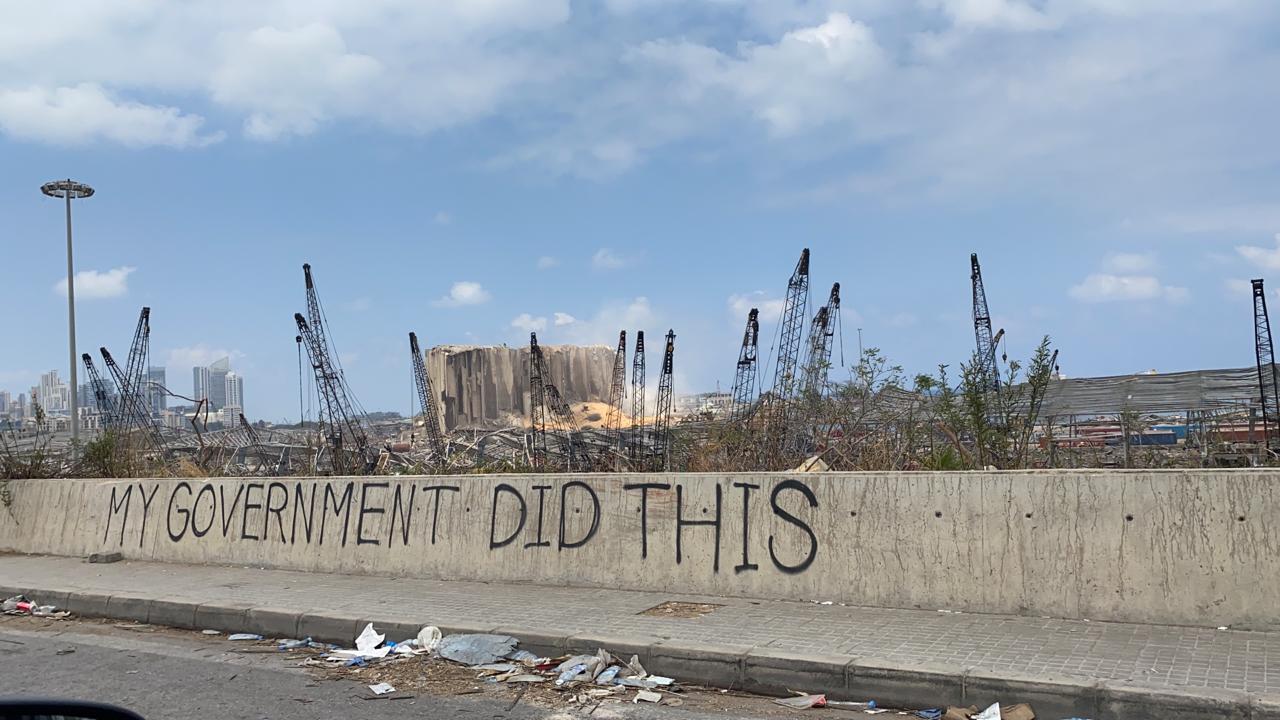
The explosive material responsible for the August 4 blast in Beirut was carried by the ailing cargo ship Rhosus in 2013. Here is what happened next.
By Christoph Koettl (video Drew Jordan)
On Nov. 21, 2013, at 11:27 a.m., a leaky ship arrived in Beirut’s port. It never left, and its volatile cargo would lead to tragedy in the city almost seven years later. The Rhosus was loaded with 2,750 tons of ammonium nitrate, which is believed to have blown up most of the port and damaged large parts of the city when it ignited in a warehouse on Aug. 4.
The former captain of the ship, Boris Prokoshev, told The New York Times that he heard from other sailors that the Rhosus sank in 2015 or 2016. This time frame turned out to be incorrect. Using satellite imagery analysis and ship tracking data, our Visual Investigations unit went back in time to follow the ship that brought the disastrous cargo to Beirut. We found its exact location, where it remains hidden a short distance from Beirut’s ground zero.
The timeline and location of the Rhosus in Beirut gained new relevance on Friday as Lebanon’s president, Michael Aoun, said that an investigation into the incident will also focus on how the explosive materials entered and were stored in the area.
Final Voyage
The Rhosus left for its last journey from Batumi, Georgia, in September 2013. Its cargo was destined for Mozambique, but the captain was ordered to make an unscheduled stop in Beirut to take on additional freight. Captain Prokoshev said they needed to make extra cash to pay for their passage through the Suez Canal. Lawyers for the ship’s creditors said the additional cargo was supposed to be transported to Jordan.
Seizure
In Beirut, port authorities impounded the 27-year-old ship after they found multiple deficiencies, according to a maritime news article from 2014. The captain and some of his crew were ordered to stay on board.
A photo from 2014 shows him with some of the 2,750 bags of ammonium nitrate in the port. These bags match the bags photographed later at the warehouse that eventually blew up, posted by a Lebanese journalist on Twitter after the incident. The warehouse pictures also show the name of the company: Rustavi Azot L.L.C. of Georgia, which is also listed on the 2013 shipping documents for the voyage.
The ship’s transponder sent its last position on Aug. 7, 2014, the same month the crew was released.
Abandoned
The Rhosus was left abandoned, and Lebanese authorities transferred its cargo to a warehouse in the port. In 2015, the ship was moved 1,000 feet up the pier where it remained for about three years. Satellite images show a ship matching the dimensions of the Rhosus, with open cargo bays, indicating it is empty.
It can also be seen in the background of a picture posted on Twitter in March 2016, clearly recognizable through the yellowish color of the ship’s bridge.
Disrepair
The Rhosus was leaking badly and began sinking in February 2018. Within days, the ship was fully submerged. Stephen Wood, a satellite image expert at space technology company Maxar, analyzed an image from Feb. 18, 2018, for The Times. He used multi-spectral imagery that can penetrate water and better reveal submerged objects and features. The resulting image shows the ship in great detail, despite being underwater.
Forgotten
Authorities never removed the shipwreck on the northern edge of the port, where it did not seem to obstruct ship traffic. The Rhosus remained out of sight and forgotten until now. So was its explosive cargo, stored a mere 1,500 feet away in a warehouse. On Aug. 4, a fire ignited the ammonium nitrate, killing more than 150 and injuring thousands.
Lebanon’s president said that multiple administrations since 2013 received warnings about the materials from the Rhosus. An investigation is ongoing and 20 port officials have been detained.
Evan Hill, Stella Cooper, Christiaan Triebert, Declan Walsh and Andrew Higgins contributed reporting. David Botti contributed production.
Christoph Koettl is a visual investigations journalist, specializing in geospatial and open-source research. He is an expert on armed conflicts, human rights and social media verification. (@ckoettl)
This article first appeared in the New York Times






The harbor must be restored very quickly.
The globalist loan pushers knew this.
Any manner for getting more of their trick
hoardable
loan money “out there”
only ends up eventually
making The Beast
even more powerful and big.
The Cash Mob Elite knows this.
But in the end
even they
will benefit from
declaring demurrage on The US dollar.
? Angel NicGillicuddy
Shibboleth